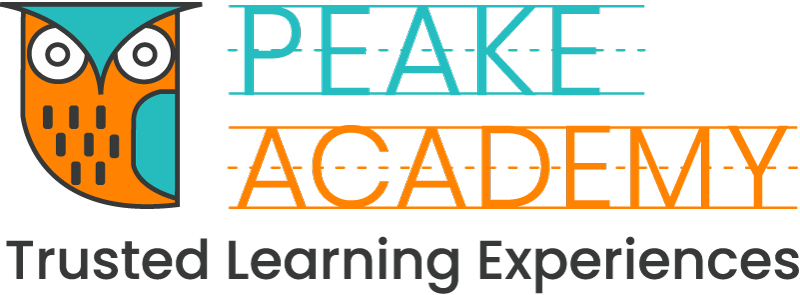8 Ways to Motivate Your Child to Learn
As parents, we want our children to be successful learners. We want them to develop a love for learning that will last throughout their lives and help them achieve their goals. But motivating kids to learn can be difficult at times, especially when they're not interested in the subject matter or feel overwhelmed by the material.
Fortunately, Peake Academy teachers know several ways to motivate children to learn and make learning fun! From setting realistic goals and providing positive reinforcement to utilizing technology and encouraging active exploration of topics, these eight tips from experienced teachers can give your child the motivation they need to become lifelong learners.
Follow your child’s lead.
One way is to follow your child's lead. Children are naturally curious, so it's essential to nurture their curiosity by allowing them to explore the world around them through play. Encourage your child to get up and move about as they explore and ask questions about the things around them. This will help your child develop problem-solving skills and build a foundation for future learning.
Elicit curiosity.
Another way to motivate your child to learn is to elicit their curiosity. Ask them questions about the world around them and encourage them to think critically about the answers they find. Read stories together and ask your child what they think will happen next or how they feel about a character's actions. This will help sharpen their problem-solving skills and encourage them to explore the world with enthusiasm.
Encourage playful exploration.
Children learn best when they are actively engaged in the material. Allow your child to explore different topics through play, whether building with blocks or playing a game. This will help them develop their creative problem-solving skills and make learning more enjoyable.
One way to encourage children's playful exploration is to provide them with various activities to explore. This could include hands-on activities such as building with blocks and playing games and more imaginative games like dress-up or pretend play. For example, if your child is interested in animals, they could pretend to be different animals while exploring various habitats.
Prioritize social interaction during learning.
Learning isn't just about memorizing facts and figures; it's also vital to prioritize social interaction during the learning process. Encourage your child to engage in meaningful conversations with their peers and ask questions when they don't understand something. This will help them develop their critical thinking skills as well as build a sense of community.
Challenge children just enough.
It's important to challenge your child, so they can continue to grow and develop as a learner. Still, it is also important not to over-challenge them. Be sure to find the sweet spot between boredom and frustration when setting goals for your child. This will help ensure that their learning experience is both enjoyable and effective.
Give children agency.
Learning can be much more meaningful when children feel like they have some control over the process. Give them the opportunity to make choices about their learning and explore topics that interest them. This will help boost their confidence and motivation as they continue to learn.
Provide incentives when necessary.
Incentives can be a helpful tool in motivating children to learn, but it's important to use them sparingly. If you feel incentives are necessary, make sure they are age-appropriate and reward the effort rather than the outcome. This will help ensure that your child is learning for intrinsic reasons rather than just for external rewards.
Praise the process rather than the outcome.
Praising the learning process rather than the outcome is another excellent way to motivate your child. Celebrate their efforts and encourage them to keep trying, even when they make mistakes. This will help boost their confidence and self-esteem as they continue to learn.
Free Resource
Thank you for reading this content. And if you loved this post, please be sure to join our Parent Advisor Facebook group where we share more insights and community.
Here’s a FREE Motivational Lunch Box Notes printables made by Peake Academy Preschool At Home
Visit our Parent Advisor and The Buzz Blogs to learn more about related topics and parenting tips. You are welcome to join our private Parent Advisor Facebook group. It’s a growing community of parents and preschool teachers where you can learn and share more parenting tips.









